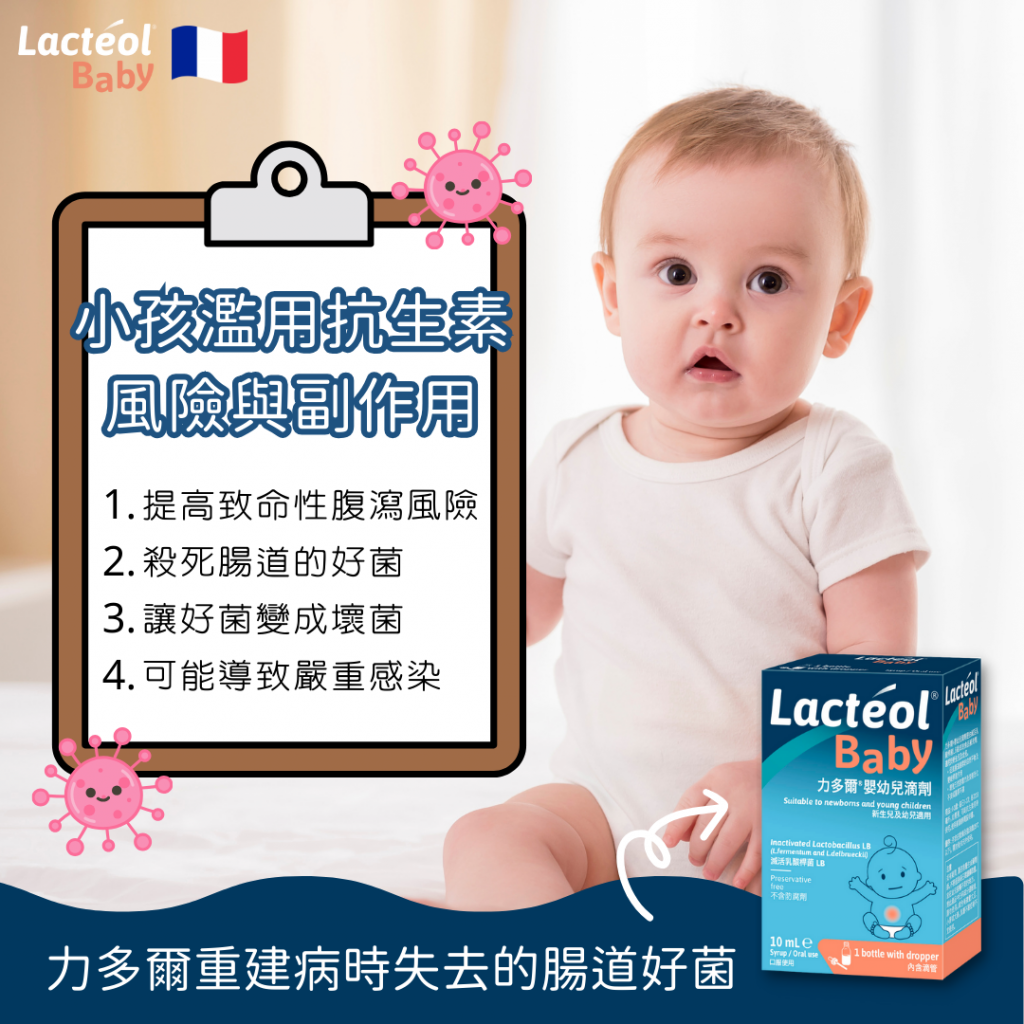Health Tips
Taking antibiotics in young children has far-reaching consequences! Side Effects Disease Risk Immunity
A paper in the “Journal of the Mayo Clinic” in the United States shows that antibiotics taken by children under 2 years old will destroy the bacteria in the baby’s intestines, thereby disrupting the normal development of the baby’s immune system and nerves, and affecting body composition and metabolism! Later in life, you may develop more diseases as you grow older. Researchers analyzed data from 14,500 children and found that about 70% had received at least one antibiotic, and most had received multiple antibiotics. Infants and young children who receive one type of antibiotic are more likely to suffer from asthma, eczema, celiac disease, food allergies, obesity, and ADHD; while infants who receive more than five antibiotics are more likely to suffer from asthma, allergic rhinitis, obesity, and ADHD. The risks are greatly increased, with female infants at a higher risk of developing celiac disease.


Antibiotics are necessary medicines to treat the symptoms of bacterial infections. However, antibiotics will not work for diseases caused by fungi and viruses. Abusing antibiotics will destroy the good microorganisms, bacteria, fungi and viruses in the body. These fine cells in the body play an important role in promoting good health, such as intestinal bacterial balance, metabolic diseases, autoimmune diseases, cancer, etc. They are symbiotic partners in maintaining good health!

Antibiotics can cause discomfort to the bacterial flora in children’s sensitive intestines. Antibiotics will kill some bacteria in the intestine that are helpful to the body, called Intestine flora. Intestine flora can enhance human immunity and promote digestion. Therefore, although aggressive antibiotics are very effective in treating serious infections, they will also eliminate good bacteria in the body and reduce immunity, resulting in fewer and fewer good bacteria in the intestines, which has far-reaching consequences!
5 ways to prevent overuse of antibiotics
1. Ask the doctor if he or she will do a bacterial strain test to ensure that the antibiotic prescription prescribed by the doctor is correct and effective.
2. Take the antibiotics prescribed by your doctor on time and do not stop taking them on your own. Even if your symptoms improve, take the entire course of medication to prevent your body from developing drug-resistant bacteria!
3. Different antibiotics must be taken due to different symptoms of infection. Do not take other people’s medicines or take leftover medicines from previous times.
4. If the doctor thinks your child does not need antibiotics, do not ask for antibiotics.
5. Pay more attention to personal hygiene and receive necessary vaccinations to prevent infection.
2. Take the antibiotics prescribed by your doctor on time and do not stop taking them on your own. Even if your symptoms improve, take the entire course of medication to prevent your body from developing drug-resistant bacteria!
3. Different antibiotics must be taken due to different symptoms of infection. Do not take other people’s medicines or take leftover medicines from previous times.
4. If the doctor thinks your child does not need antibiotics, do not ask for antibiotics.
5. Pay more attention to personal hygiene and receive necessary vaccinations to prevent infection.
Learn more about good gut bacteria
Lacteol fort/ Lacteol Baby
- Patented ingredient inactivates LB postbiotics – helps you quickly relieve and regulate gastrointestinal problems
Enhance intestinal immunity and resist bad bacteria
Promote the balance of intestinal good bacteria and the growth of bifidobacteria
Will not cause constipation
Safer than live probiotics


 中文 (中国)
中文 (中国) 中文 (香港)
中文 (香港)